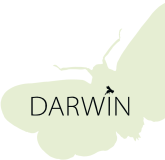 |
Darwin Day 2018
Why is life the way it is?
Tuesday 20 February at 16:00. VilVite, Nash Auditorium, Thormøhlensgate 51
There is a black hole at the heart of biology. We do not know why complex life is the way it is or how it began. In this lecture, award-winning biochemist Nick Lane radically reframes evolutionary history.
 The Earth teems with life: in its oceans, forests, skies and cities. Yet there’s a black hole at the heart of biology. We do not know why complex life is the way it is, or, for that matter, how life first began. In this lecture, award-winning author and biochemist Nick Lane radically reframes evolutionary history, putting forward a solution to conundrums that have puzzled generations of scientists.
The Earth teems with life: in its oceans, forests, skies and cities. Yet there’s a black hole at the heart of biology. We do not know why complex life is the way it is, or, for that matter, how life first began. In this lecture, award-winning author and biochemist Nick Lane radically reframes evolutionary history, putting forward a solution to conundrums that have puzzled generations of scientists.
For two and a half billion years, from the very origins of life, single-celled organisms such as bacteria evolved without changing their basic form. Then, on just one occasion in four billion years, they made the jump to complexity. All complex life, from mushrooms to man, shares puzzling features, such as sex, which are unknown in bacteria. How and why did this radical transformation happen?
The answer, Lane argues, lies in energy: all life on Earth lives off a voltage with the strength of a lightning bolt. Building on the pillars of evolutionary theory, Lane’s hypothesis draws on cutting-edge research into the link between energy and cell biology, in order to deliver a compelling account of evolution from the very origins of life to the emergence of multicellular organisms, while offering deep insights into our own lives and deaths.
The lecture is intended for a wide audience, will be held in English, and is part of the
Horizons seminar series
of the Faculty of Science dedicated to big questions in science. Refreshments will be served from 16:00; the talk begins 16:15.
Why is the Darwin Day celebrated?
Who is behind the Darwin Day in Bergen?
The Darwin Day 2018 in Oslo
Earlier events:
2017,
2016,
2015,
2014,
2013,
2012,
2011,
2010,
2009,
2008,
2007.
|
|



 The Earth teems with life: in its oceans, forests, skies and cities. Yet there’s a black hole at the heart of biology. We do not know why complex life is the way it is, or, for that matter, how life first began. In this lecture, award-winning author and biochemist Nick Lane radically reframes evolutionary history, putting forward a solution to conundrums that have puzzled generations of scientists.
The Earth teems with life: in its oceans, forests, skies and cities. Yet there’s a black hole at the heart of biology. We do not know why complex life is the way it is, or, for that matter, how life first began. In this lecture, award-winning author and biochemist Nick Lane radically reframes evolutionary history, putting forward a solution to conundrums that have puzzled generations of scientists.